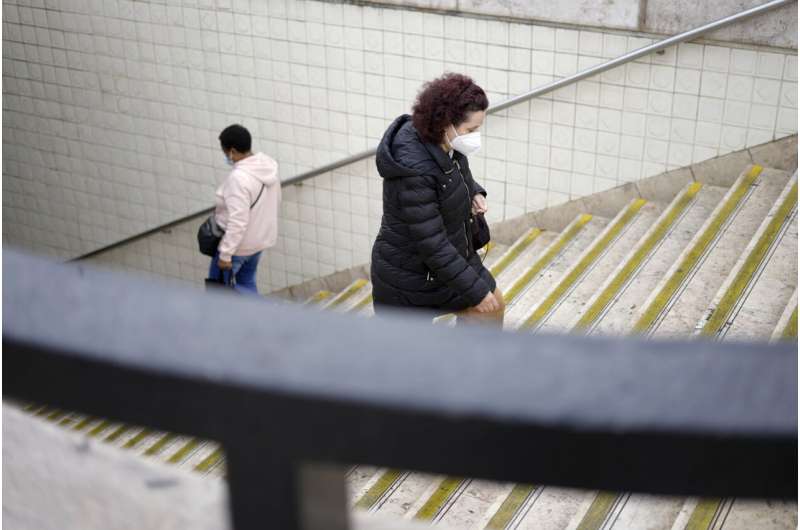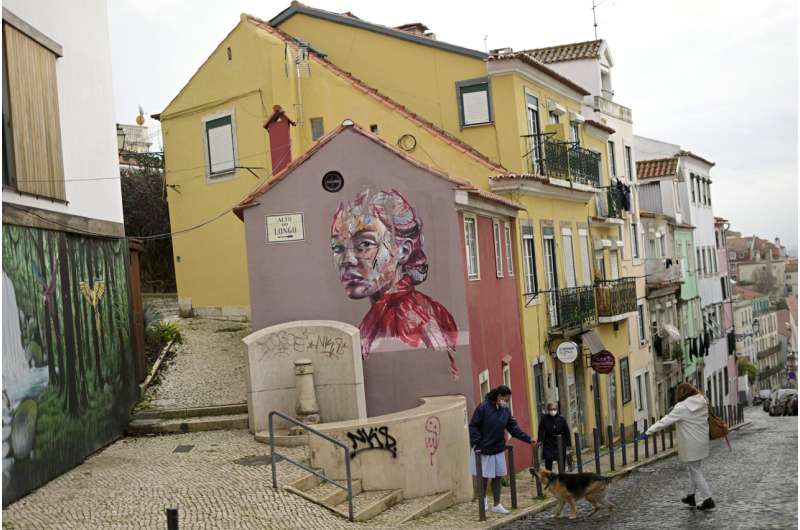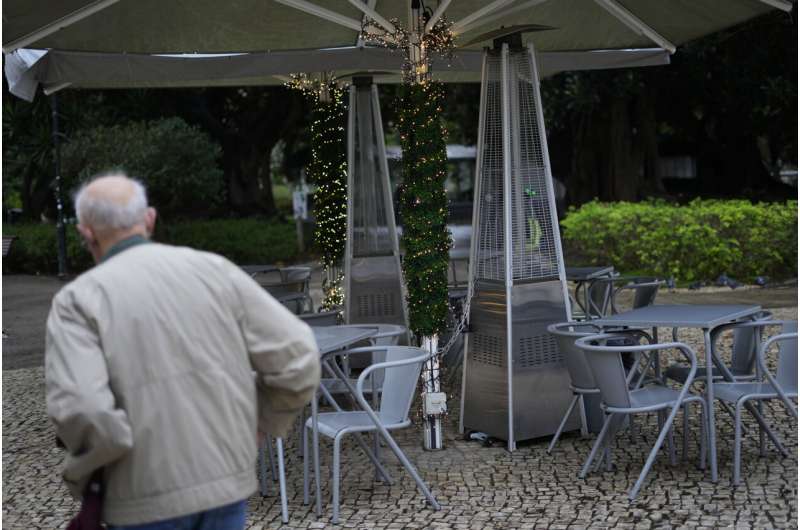People wearing face masks walk in and out of a subway station in Lisbon, Tuesday, Dec. 21, 2021. Portugal holds an extraordinary Cabinet meeting today with the government expected to announce some tinkering with the COVID-19 pandemic measures ahead of the holidays. Credit: AP Photo/Armando Franca
Portugal is reimposing coronavirus restrictions because of fears over the threat from the omicron variant, despite the country having one of the highest COVID-19 vaccination rates in the world.
With new daily infections ticking slowly but steadily higher, and despite almost 87% of the population being fully vaccinated, the government announced Tuesday a new raft of restrictions over the holidays—a week earlier than it had planned.
Prime Minister António Costa announced that from midnight Saturday, working from home will be mandatory and discotheques and bars will be closed.
The measures will be in effect at least through Jan. 9.
A negative test result must be shown to enter cinemas, theaters, sports events, weddings and baptisms during that period.
In exceptional measures for Christmas Eve and Christmas Day, as well as New Year's Eve and New Year's Day, a negative test result will be required to enter restaurants and year-end public celebrations.
-
Women wearing face masks stop to chat when crossing each other on the street in Lisbon, Tuesday, Dec. 21, 2021. Portugal holds an extraordinary Cabinet meeting today with the government expected to announce some tinkering with the COVID-19 pandemic measures ahead of the holidays. Credit: AP Photo/Armando Franca
-
A man walks past an empty kiosk terrace decorated with Christmas lights in Lisbon, Tuesday, Dec. 21, 2021. Portugal holds an extraordinary Cabinet meeting today with the government expected to announce some tinkering with the COVID-19 pandemic measures ahead of the holidays. Credit: AP Photo/Armando Franca
And on New Year's Eve, no more than 10 people can gather in the street, and drinking alcohol outdoors will be prohibited.
"We know we're going into an especially difficult period," Costa told a news conference, referring to COVID-19 surges in other European countries because of omicron.
© 2021 The Associated Press. All rights reserved. This material may not be published, broadcast, rewritten or redistributed without permission.

























